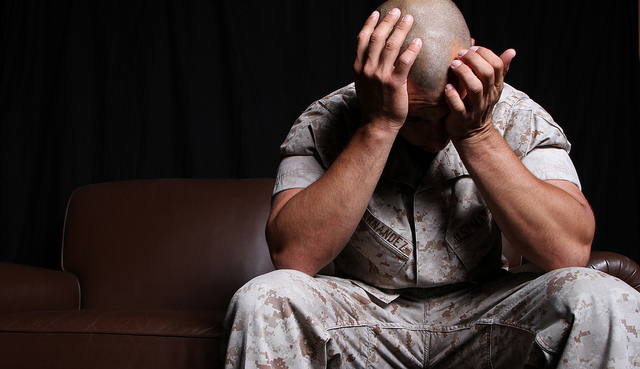Pentagon's Brain-Powered Video Games Might Treat PTSD
by Jason von Stietz - July 8, 2014

Could neurofeedback effectively treat PTSD in veterans or is the reductions of symptoms the result of the placebo effect? Researchers at the Naval Academy in San Diego announced plans for an upcoming clinical trial comparing neurofeedback treatment to a sham controlled procedure in a sample of 80 patients. Wired discussed the study in a recent article:
“When the brain sees itself interacting with the world, it becomes interested in that,” Dr. Siegfried Othmer, chief scientist at LA’s EEG Institute and responsible, along with his neurobiologist wife Sue, for “The Othmer Method” — a specific approach to neurofeedback being used in the military trial — told me last year. ”Likewise, when it sees the signal on-screen and realizes it’s in charge, it becomes interested. You might not notice, but the brain takes notice.”
The realm of brain plasticity is relatively new, but neurofeedback actually isn’t. The procedure first gained notoriety in the 1960s as a treatment for everything from migraine headaches to bed-wetting. Still, in part because of a paucity of mainstream scientific research, the approach has long been relegated to the realm of bunk science. “I think the practice has gotten ahead of the science,” Dr. Andrew Leuchter, a professor at UCLA’s Semel Institute for Neuroscience and Human Behavior, told me. “It wouldn’t be surprising … if much of the benefit was attributable to the placebo response.”
Despite such mainstream skepticism, neurofeedback is already being used by several military doctors and psychologists. Maj. Michael Villaneuva — nicknamed “The Wizard” by his patients — has performed NF on several hundred active-duty soldiers, and even brought his game console and electrodes on a deployment to Afghanistan this year. And Dr. Jerry Wesch, who leads a PTSD recovery program at Fort Hood, describes the results of his own neurofeedback trials on patients as “jaw dropping.”
Upwards of a thousand former soldiers have also tried neurofeedback, thanks toHomecoming 4 Veterans, a non-profit started by the Othmers that offers free NF to veterans through a network of 200 practitioners nationwide. The two are also responsible for training Villaneuva and other military docs in the art of NF.
Already, the Othmers are confident that the military’s clinical trial, expected to kick off in December, will yield positive results. And they hope that the trial, once complete, lends more credence to the therapy they’ve helped pioneer. “I think the trial could be huge, not only with [medical] academia, but for clinicians,” Sue tells Danger Room. “They’re often wary of adapting procedures that haven’t seen evidence-based study. So this checks off an important box.”
But the trial won’t be easy: Controlled tests of processes, rather than pharmaceuticals, are notoriously tough. That’s because designing and executing a “sham” procedure is much more difficult than, say, just doling out sugar pills instead of the real drug.
Then again, for soldiers who credit neurofeedback with their recovery from PTSD, the execution or academic impact of a clinical trial is hardly the most important thing. “How it works doesn’t matter to me,” Staff Sgt. Justin Roberts, who underwent the process at Fort Hood, told me. “Just as long as it does.”
Read the Full Article Here

 Subscribe to our Feed via RSS
Subscribe to our Feed via RSS